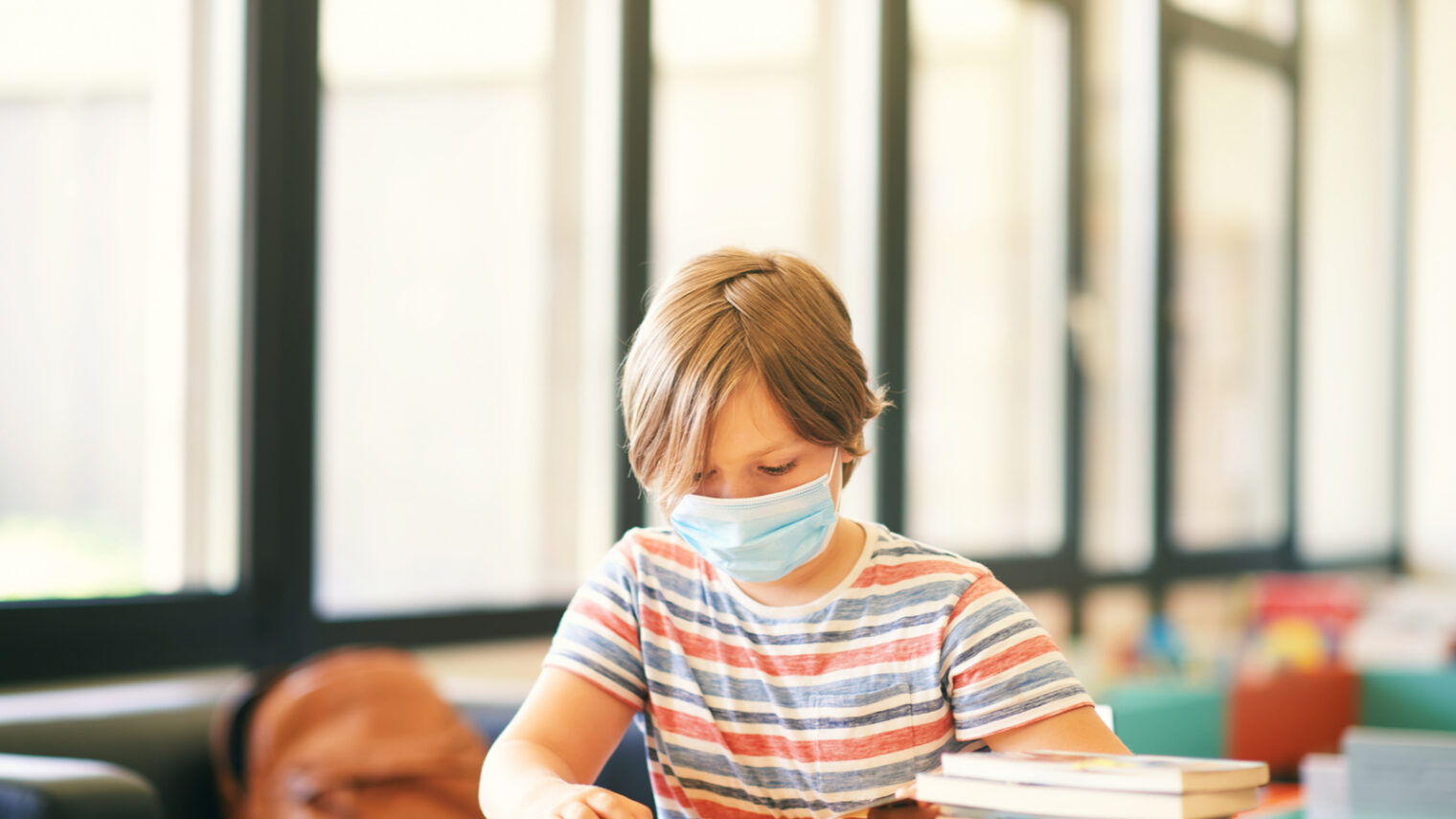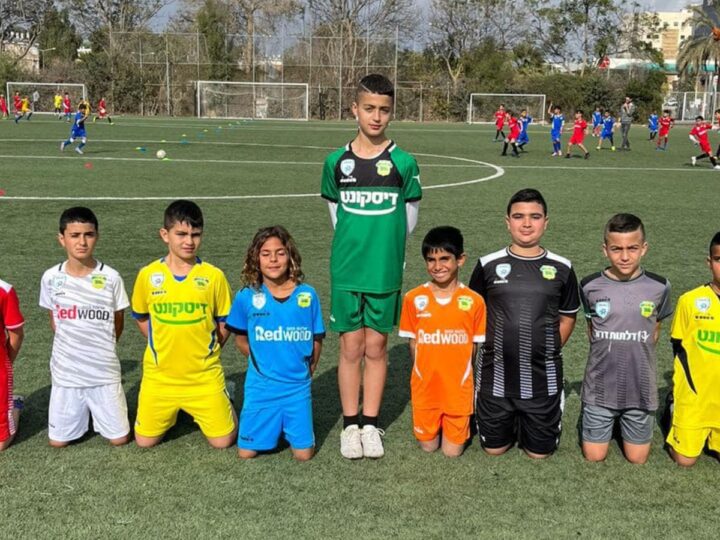Uncertainty, confusion and inconsistency: These words pretty much sum up life during Covid times. Unfortunately, they’re the exact opposite of what children (and parents) need.
Going back to school in a pandemic involves constant changes in schedules and personnel, the challenges of remote learning, adjusting to in-classroom “pods” or “capsules,” wearing facemasks and slathering on hand sanitizer. And that’s just the obvious stuff.
What are the biggest issues?
ISRAEL21c asked three experts to identify the biggest issues and suggest practical tips to help parents smooth out this school year’s bumpy road. Each has many years of professional and personal parenting experience.

“In general, we’re seeing a lack of direction and consistency that is very challenging,” says Arona Korman Gvaryahu, a teacher educator and counselor for teachers and parents across Israel for the past 35 years.
“Kids at risk for school failure don’t know why they have to bother going back. Kids who are highly motivated to succeed in school are missing a dependable schedule,” Gvaryahu says.
“With preschoolers, when they’ve just gotten used to a teacher and then she’s out sick, that takes a toll. They like to see the same face in the morning.”
When that face is masked, Gvaryahu adds, children may have trouble in reading and language classes. “Distinguishing between vowel sounds is hard if they can’t see the teacher’s mouth. And if students can’t ‘read’ the teacher’s face, it takes away from many aspects of learning.”

Tziona Levy, the Education Ministry’s superintendent for English studies, says the transition from a complete school environment to home learning over the past several months has far-reaching consequences.
Academically, she says, “time on task is really important.” She is concerned that weaker students cannot sit in front of the computer for hours, leading to bigger gaps in their education.
But it’s not only about knowledge.
“School has such an important role academically and also socially,” she says. “In school, children learn life skills like how to work with partners and how to express themselves.”

Clinical psychologist and parenting educator Annette Berger, who works in Educational Psychological Services in Ma’aleh Adumim and in private practice in Jerusalem, says some children enjoyed being home over the past six months, while others suffered socially.
Now that most are back in school, “The issues are different than when corona was new and there was a lot of panic and schools were shut down,” Berger says.
“Now there’s less anxiety because kids have adapted to mask wearing, learning in capsules and shortened days. But there’s uncertainty about what is coming. That can cause confusion.”
Frequently changing schedules, and inconsistent schedules among siblings, “is stressful for parents and their stress filters down to the kids.”
Gvaryahu adds that many parents are experiencing financial stress now too, “and kids sense it.”
PRACTICAL TIPS FOR PARENTS
- Strive for calm
“When school seems to be upside down, kids need parents to serve as the constant in their lives. They need to know the people at home are calm – even if that’s easier said than done,” says Gvaryahu.
Berger created three short videos (in English), on request of the Ma’ale Adumim community center, demonstrating breathing and relaxation techniques.
- Establish or maintain routines
“Especially now when schedules may be different for every child in the house, they all need some commonality on a family level, whether eating dinner at a certain time, bedtime and a predictable breakfast. That’s grounding and comforting,” says Berger.
- Create a home learning environment
“It’s most important that there’s not such a big separation between home and school,” says Levy. “Children should have a place where they can get used to sitting and concentrating for periods of time.”
- Talk, read and do homework together
Levy, who has a PhD in language education, encourages parents to read to and with kids, and to talk with them to boost vocabulary and language skills.
“What is important now is not the material but the skills development so kids can be more independent in their learning,” says Gvaryahu.
- Limit exposure to media
“The news out there just isn’t good,” says Berger. “Certainly for younger kids, there is no purpose for them to see all the anger and negativity in the media, how many people are sick and how many dead. They should be focused on their own needs and responsibilities.”
- Don’t make your kid a school spy
“If you want to know whether the teachers and kids are following rules about wearing masks and maintaining distance, call the school or the teacher. Don’t make your kid be a whistle-blower,” counsels Gvaryahu. “If the child volunteers the information, don’t get upset but see what you can do to rectify the situation.”
- Hold weekly family meetings
“This is a great way to get a bead on how everyone is doing, to mobilize the family and communicate, and for parents to model how to present issues such as financial difficulty and changes in family structure,” says Berger. “Hearing about the source of stress instead of just feeling it is very validating, and then you can brainstorm what to do about the problems.”
For example, if the children share that they don’t like attending class on Zoom, the parents can acknowledge the difficulty and suggest activities to make life more pleasant.
- Encourage organized sports
A recent Israeli study revealed that adolescents who participate in online group sports exhibit better resilience, self-esteem and morale, and express fewer concerns about the pandemic.
Eighty-four percent of respondents said the regular practice sessions helped them cope with negative feelings and low spirits during the lockdown, while 55% indicated that contact with their coach was a meaningful source of support.
- Seven good things
At bedtime, suggests Gvaryahu, discuss with your child seven good things that they did well during the day and then reinforce their pride in accomplishment. It can be simple things like getting dressed without a fuss or putting everything they need into their backpack.
- Seek help if needed
Berger says it is normal in these abnormal times for children and parents to feel “off,” but more serious emotional difficulties may require professional attention.
“If the child’s functioning is impaired and level of distress can’t be contained, or you see drastic changes in sleeping and eating habits, loss of interest in things that used to interest them, increased fears or phobias that you can’t help the child regulate, seek guidance from a professional.”

















